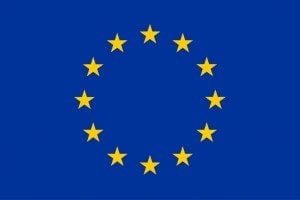
For a Tunisia without discriminations
Duration: February 2023 – August 2026
Country: Tunisia
Communities: Various, including Baha’i, Christians and Jews, black Tunisians, sub-Saharan migrants, LGBTQI+, persons with disabilities and Amazigh
What is this programme about?
This programme aims to promote and protect the human rights and fundamental freedoms, including gender equality, democracy and the primacy of law, of the most vulnerable groups in Tunisia: religious and ethnic minorities, and sub-Saharan migrants, as well as women and members of the LGBTQ+ community belonging to those communities, by addressing several issues:
- The capacity of civil society organizations (CSOs) to work on discrimination and in support of victims, which, having improved in recent years, remains limited.
- The growing climate of instability that threatens the work of human rights defenders (HRDs) and risks jeopardizing the legislative and democratic gains of the past 11 years.
- The lack of political will to tackle discrimination effectively.
- The invisibility of communities experiencing discrimination and their experiences, their lack of political representation and the difficulty in combatting discrimination within society.
This new initiative builds on the work of past and current collaborations in Tunisia: All 4 All Phase One, All 4 All Phase Two and Tackling Multiple Forms of Discrimination in Tunisia, in response to the ongoing difficulties faced by communities experiencing high levels of discrimination.
Why are we delivering this programme?
Since 2011, Tunisia has made efforts to improve its legal framework and to harmonize its legislation with its international commitments and the demands of its civil society. This resulted in the adoption of several laws that offer guarantees to minorities, indigenous peoples and other communities experiencing discrimination, including legislation on the elimination of all forms of racial discrimination and on the equality of all citizens.
However, these laws remain poorly implemented with many barriers persisting. Incidents of racial discrimination are not decreasing. Between 2019 and 2022, MRG and its local partners documented more than 600 cases of racial discrimination. Equality is not upheld, as evidenced by the prevalence of multiple and intersectional forms of discrimination among women, being twice as likely to be exposed to harassment and intimidation.
More recently, the gains of the 2011 Revolution have been further threatened by an economic crisis which has affected all aspects of Tunisian society, leading to a prolonged period of protests across the country in 2021. The impacts of the Covid-19 pandemic have compounded the social and legal challenges faced by communities targeted in this programme. Black Tunisians remain largely excluded from educational and employment opportunities. Although unemployment affects the entire Tunisian population, it is particularly high in disadvantaged regions where there is a concentration of Black and migrant populations, reflecting a double problem of marginalisation. Throughout all this, the struggles of these marginalized communities remain almost absent from the media and public spheres.
What are we doing?
- Developing the capacities of and empowering civil society actors working on discrimination to ensure better access to justice for victims, through: strategic workshops for partners on project management according to EU procedures; workshops on non-discrimination, intersectionality and advocacy for HRDs and CSOs working on human or minority rights; trainings for lawyers on national and international frameworks for non-discrimination; and online trainings for journalists on how to cover discrimination.
- Supporting victims of discrimination and strengthening their knowledge of law to empower those at risk of discrimination through legal support and workshops.
- Raising awareness about diversity and coexistence issues among key stakeholders to increase the political and public will to address discrimination in Tunisia, using: workshops for youth and religious leaders; national and international advocacy; media campaigns to raise awareness about the experiences of minorities; research and the production of reports.
Who are our partners?
- Mnemty is an apolitical association, founded in 2013, working to eradicate all forms of racial discrimination through awareness raising and education, and for this programme, with a particular focus on the visibility and representation of black Tunisians.
- Attalaki is a non-governmental organisation founded in 2016 by young Tunisians belonging to different religious minorities. They are one of the main organisations in Tunisia working on the freedom of religion and belief and a key player in defending the rights of religious minorities and making their voices heard.
Who is funding this programme?
This programme is supported by the European Union.
 Amina Boukamcha, coordinator of MRG’s partner organization Mnemty at a training for Tunisian lawyers against human trafficking organized in February 2023, Tunis, Tunisia. Courtesy of Slim Kacem, Roots TV.
Amina Boukamcha, coordinator of MRG’s partner organization Mnemty at a training for Tunisian lawyers against human trafficking organized in February 2023, Tunis, Tunisia. Courtesy of Slim Kacem, Roots TV.
 This content represents the views of Minority Rights Group only and is its sole responsibility. The European Union does not accept any responsibility for the use that may be made of the information it contains.
This content represents the views of Minority Rights Group only and is its sole responsibility. The European Union does not accept any responsibility for the use that may be made of the information it contains.


